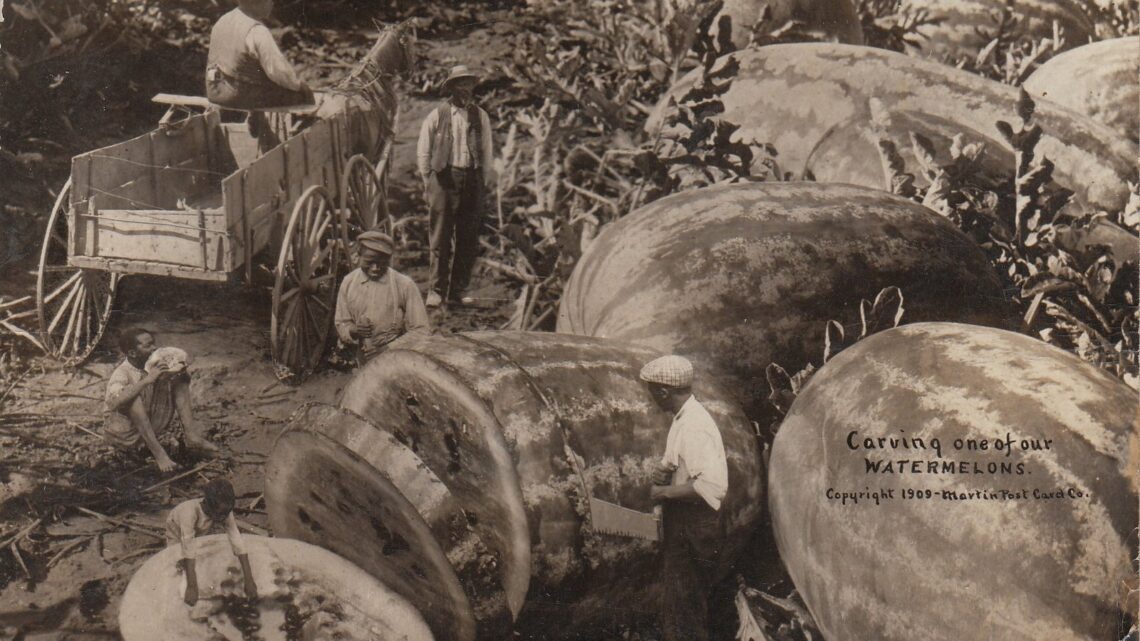Abundance Fantasies: Exaggeration Cards
August 30, 2013
Exaggeration cards are picture postcards depicting enormously oversized fruits, vegetables and livestock. First appearing in Fresno in 1905 the cards quickly struck a chord throughout the western United States. These “tall-tale postcards” became especially prevalent in small town rural communities hoping to forge an identity for themselves as places of agrarian abundance. The cards were surprisingly successful. One of the exaggerators of the first hour, Wiliam Martin, produced over 7 million cards in his first year of business and retired as a wealthy man only 4 years later. Many others, like Edward H. Mitchell, H.M. Brown, Alfred Stanley Johnson Jr. and J.H. White also built profitable print houses on the success of imagining myths of plenty.
Tall-tale postcards affirmed the fundamental American myth of agricultural abundance, a myth often diametrically opposed to reality. If the ideal promised by the American Frontier did not yet exist in the real landscape, at least it might in an imagined one. In its series on Abundance Fantasies, The Incredible Shrinking Man investigates how the desire for abundance as part of the human condition may in fact become a driving forces behind our willingness to become smaller. Doing so would shrink us into a world of abundance, making exaggeration cards not a nostalgic remnant of the past but a visionary image of the future. Several vintage exaggeration cards will be on display as part of an The Incredible Shrinking Man research facility in the Future Food House during the World Food Festival in Rotterdam.
[…] Exaggeration of food is plentiful and extremely popular. The Guinness Book of World Records contains a large category of largest foods, including the obvious record breaking hamburgers and pizzas. A more obscure and somehow absurd exaggeration food is giant sushi. Sushi by nature is about small, not big. It’s about subtle, delicate, bite sized food. Yet the fundamental desire to obliterate the notion of scarcity, and turn small things into big things, is so strong we’re willing to sacrifice traditional values for a feeling of abundance. Thus this video of a succesful attempt to create a very large sushi in a Japanese tv-show is a perfect illustration of the paradox of our desire. On the one hand it created a world of over-consumption and waste. On the other hand it may be a piece of the puzzle necessary to shrink out of this predicament. If we want abundance we should shrink. The vulgar jokes and lighthearted laughter accompanying the process of preparing the giant sushi roll represent both the sense of shame at such a display of desire as well as the fundamental feeling of happiness related to the idea of having so much, of never reaching the end. ‹Previous Post Shrinking is Easy […]